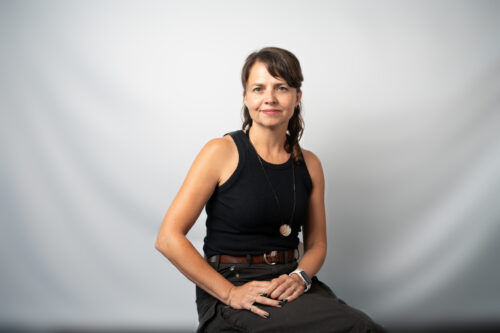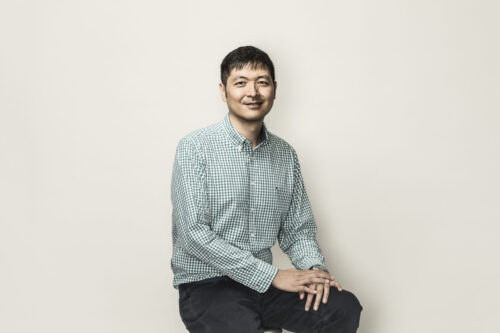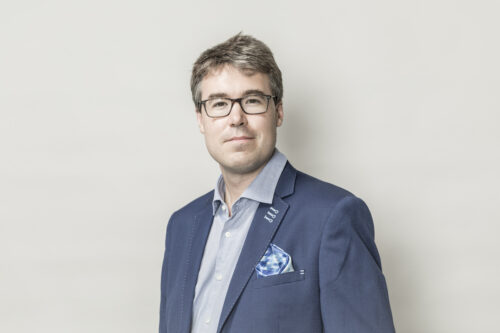Fueling Discovery: Lassonde Innovation Fund (LIF) paves the way for research success
Tags:

Research at York University’s Lassonde School of Engineering is being launched to new heights through support from the Lassonde Innovation Fund (LIF). Over the last six years, this research-advancement initiative has funded dozens of daring projects led by interdisciplinary teams and aimed at addressing the United Nations’ Sustainable Development Goals (UN SDGs).
LIF also equips faculty members with essential funding to recruit and support student researchers, providing exciting opportunities for curious minds to help lead cutting-edge projects.
This year’s LIF initiatives focus on a range of topics, spanning from green roof innovation to exploring planetary skies. Through these projects, faculty members are committed to advancing scientific research and creating solutions for a more just and sustainable world.
Learn more about this year’s LIF projects below.
Assessing Hydraulic and Thermal Performance of Green Roof
Led by: Magdalena Krol, associate professor, Civil Engineering

Professor Krol’s LIF project is rooted in departmental collaboration, leveraging her expertise and that of Civil Engineering Professor Usman Khan, as well as the testing capacity of the Climate-Data-Driven (CD3) Facility, to compare the performance of conventional roofs against green roofs. These innovative systems boast many valuable qualities, like the ability to mitigate flood risk by retaining storm water and reduce energy costs of buildings and homes.
Currently, there is limited research that critically evaluates the performance difference between conventional and green roofs, creating a significant knowledge gap in urban sustainability. This project aims to bridge the gap by constructing modules of both roof types and monitoring their behaviour under realistic conditions such as fluctuating temperature, precipitation and humidity. Using various tools and technologies, data will be collected over time to analyze specific performance indicators, including stormwater retention and energy dissipation.
Establishing a thorough understanding of green roof efficiency is crucial for further development of design guidelines and encourages adoption of these systems in urban areas. This pioneering initiative marks the first direct evaluation of green roofs against conventional roofs, offering the potential to influence the future implementation of green roof technology.
This project is also driven by the UN SDGs, addressing a handful of goals including, SDG 7 – Affordable and Clean Energy, SDG 11 – Sustainable Cities and Communities, SDG 14 – Life Below Water and SDG 15 – Life on Land.
Interpretable Learning of Bio-signaling Systems via Data-driven Graph Analysis
Led by: Gene Cheung, professor, Electrical Engineering & Computer Science

With support from LIF, Professor Cheung aims to build on existing research which explores the use of a graph-based tool to evaluate and classify biological signals. The performance of this tool was validated in previous work, demonstrating the ability to link visual information with cell activity in the retina. Specifically, the tool functions by identifying and interpreting data within a given dataset and linking patterns to the biological responses of cells.
Professor Cheung’s LIF project will proceed in collaboration with Andrew Eckford, associate professor in the Electrical Engineering & Computer Science department as well as Yuji Nakatsukasa, associate professor at the University of Oxford. The researchers will apply their expertise to refine and improve the graph-based classifier to determine exactly which cells are responding to particular visual information.
This advanced tool has the potential to increase understanding of the visual system, helping inform the development of assistive technologies for visual impairments. The project also serves as a foundation for future work that aims to extend analyses to more diverse and complex biological signals.
By achieving successful project outcomes, Professor Cheung hopes to strengthen the notoriety of this research, helping secure additional grants from prestigious sources such as the Natural Sciences and Engineering Research Council of Canada (NSERC) and Canadian Institutes of Health Research (CIHR).
Perceiving Planetary Skies through Space, Time, and Experience
Led by: John Moores, associate professor, Earth & Space Science & Engineering

Harnessing the potential of interdisciplinary research, Professor Moores is blending art and science to create space-themed immersive experiences, inspired by data gathered from planetary skies. This research is driven by the idea that engaging with planetary data in a more captivating way can help reshape our understanding of other planets.
Professor Moores will work in collaboration with Sarah Rugheimer, associate professor in the Faculty of Science, Jennifer Steeves, professor in the Faculty of Health and Ian Garrett, associate professor at the School of Arts, Media, Performance & Design.
The project includes three objectives: utilizing radiative heat transfer techniques to model alien skies, developing immersive exhibits that simulate exotic space environments, and analyzing individuals’ psychological and physiological responses to these space-themed displays.
This ambitious, interdisciplinary research promises to investigate, inform and inspire, fostering a deeper connection between space and humanity, while advancing understanding of planetary skies.
About the Lassonde Innovation Fund
The Lassonde Innovation Fund continues to be a catalyst for groundbreaking research and interdisciplinary collaboration at the Lassonde School of Engineering. By supporting innovative projects and providing opportunities for faculty and student researchers, LIF is playing a pivotal role in addressing global challenges and driving forward the United Nations’ Sustainable Development Goals. The diverse range of projects funded this year exemplifies the commitment of Lassonde researchers to creating a more sustainable and just world through scientific advancement.